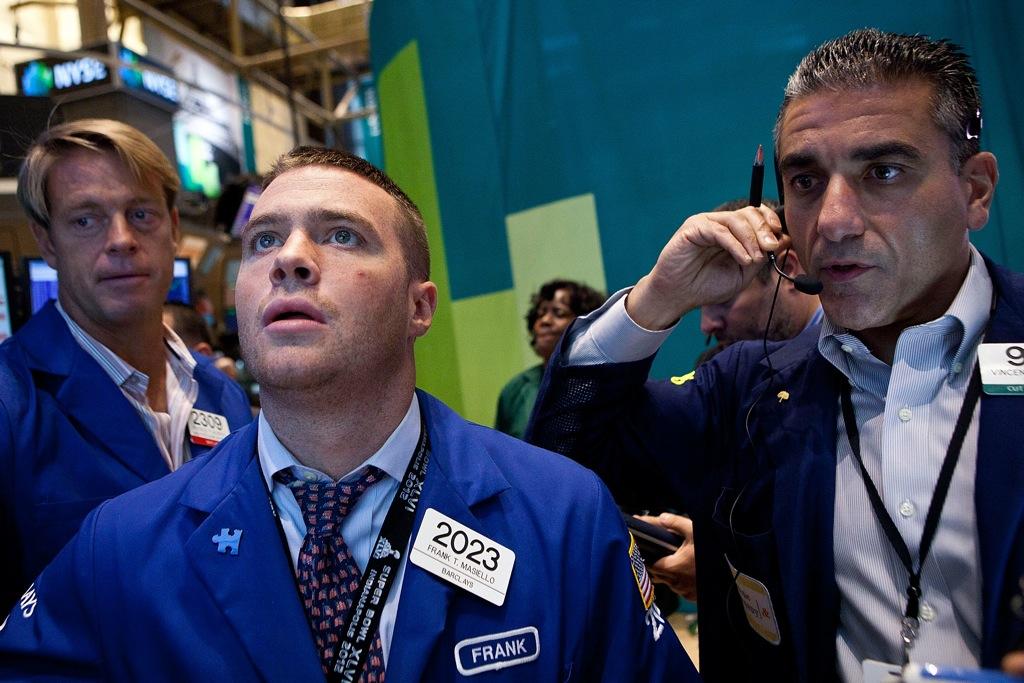There's plenty of interesting and helpful Wall Street terminology out there.
However, it's an unfortunate tendency of pundits and analysts alike to try to sound smarter or more connected by tossing around jargon that can be meaningless and even misleading.
These are cliches, placeholders, and half truths that we see all day on TV and in analyst notes. If you hear them, change the channel. You're not likely to hear anything of use.
Trading in a range
Why people say it: The stock market hasn't moved at all, and they need something that sounds interesting to say.
Why it's useless: The "trading range" is an arbitrary construct of the commentator, and a flat stock or market isn't interesting.
Cash is on the sidelines
Why people say it: They think that there's room for the markets to go up.
Why it's useless: Cash doesn't enter or leave the market, it just moves between buyers and sellers.
Bottoming process
Why people say it: They think a stock or market is (possibly) at its low point.
Why it's useless: It's basically saying that something is headed down, but the commentator has no idea about how much it will go down or how long it will take.
Cautiously optimistic
Why people say it: They are positive, but want to seem prudent and cautious.
Why it's useless: The phrase is incredibly vague and a blatant attempt by the commentator to seem right whether a market goes up (I was optimistic!) or goes down (I was cautious!).
Stockpickers' market
Why people say it: They think that is the time to look for individual stocks, and not a time for indexers.
Why it's useless: Implies that this market is somehow different or unique, when in reality, anybody who trades is always trying to pick winners. Any time a market is going down or volatile can be bad for indexers. That doesn't make it better for picking individual stocks.
Macro volatility
Why people say it: The global economy is uncertain, and it sounds smart.
Why it's useless: The world has been in a constant state of macro volatility for the past several years.
Constructive
Why people say it: It's a statement of vague optimism that doesn't commit to a time period or target.
Why it's useless: It's a vague positive feeling without any real content.
More buyers than sellers
Why people say it: A stock/market is going up.
Why it's useless: Every single stock transaction requires both a buyer and a seller. When a stock goes up, it's because the buyer is willing to pay a higher price.
Reversion to the mean
Why people say it: There is a stock or market that is heading back to a previous price level.
Why it's useless: The fact that something was priced at a particular level in the past doesn't make it the correct or average price.
Black swan/Perfect storm
Why people say it: They expect a massive, unexpected shock that devastates an economy.
Why it's useless: They're previously useful metaphors that have been abused and overused to the point that they have lost any impact.
Our thesis remains unchanged
Why people say it: They are maintaining a call despite contrary information.
Why it's useless: It's a verbal confirmation of the fact that nobody likes to admit that they're wrong.
Moving parts
Why people say it: When somebody particularly understand a business or process, and doesn't want to admit it.
Why it's useless: Do you really want analysis on anything from somebody incapable of describing how it works?
Stall speed
Why people say it: Growth is sputtering out, but isn't quite negative.
Why it's useless: It means something is not a recession or a recovery, often conveniently without a definition of either.

More from our partners at Business Insider:
Business Insider: The 12 Craziest Obstacles from The Equestrian Course
Business Insider: Public Sector Austerity is Slamming the Economy
Business Insider: London Mayor on Beach Volleyball: "Glistening Like Wet Otters"
Business Insider: Scientists Discover a Surprising New Use for Prozac
Business Insider: Guess Which US Region Liked Chick-Fil-A After the Anti-Gay Controversy
